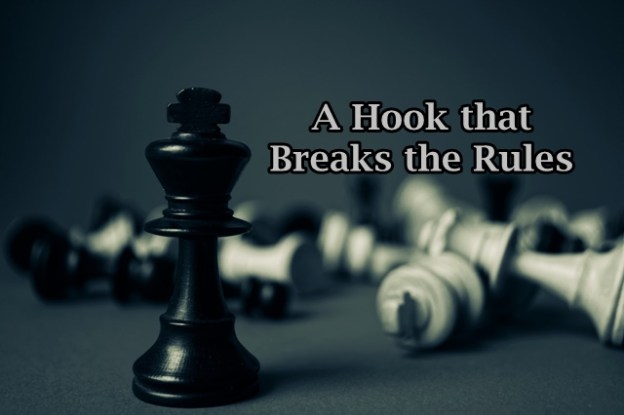Here are 100 story ideas you can steal right now. And if that’s not enough, generate your own with the Idea Engine, or peruse these lists of scene ideas, flash fiction prompts, and writing prompts.
Story Ideas
Write a story about…
- A character with an addiction who discovers that they’re someone else’s addiction.
- A historical character who travels to the present day and causes chaos when they steal back something that originally belonged to them.
- An alien species that lands on earth but is only detectable through literature.
- A world where every other person is born with wings and the history of how this came about.
- A magical object that teleports into the hand of anyone who thinks about it, and the difficulties this causes for its owner.
- A character who’s seeking justice for a murder they committed but can’t prove.
- A faustian musician who’s trying to resurrect a dead musician so they can jam together.
- A character who’s trying to win back their partner who ran away with their best friend.
- A spirit animal’s quest to choose their human.
- A mythical drug that’s at the root of someone’s family tree.
- A fountain pen collector who’s found murdered, and the murder weapon is a fountain pen that was rumoured to have belonged to a famous historical figure.
- A teenage boy who dreams of marrying a(n alien) princess.
- A wedding planner who bears a secret grudge against happily married (or engaged) couples.
- The history of a family who are committed to resurrecting an ancient art.
- A character whose obsession with entomology threatens to unleash a plague of biblical proportions.
- A group of archeologists who discover the ruins of Atlantis on a newly-formed volcanic island.
- A knight who spends five years trying to break a spell cast on him by a witch, only to slowly fall in love with her.
- A character whose family and friends believe that they are a mythological figure resurrected, even though they don’t believe it themselves.
- A sailor who is shipwrecked on an artificial island-kingdom owned by an eccentric billionaire who has been presumed dead for ten years.
- A character making friends while waiting for a hurricane to hit the hotel where they’re staying.
- A graveyard that’s besieged by the souls of those who were buried outside its walls.
- A bookshop that’s the last refuge of a group of fans of an unusual (and very specific) genre.
- An occultist who develops a sudden interest in science.
- A vintner who mans an interplanetary expedition to solve the mystery of a grape blight.
- A dragon who’s in love with a rain deity and wants to find them the perfect gift.
- A guest who begins to suspect that they’re not the only guest.
- The founders of a town where the average IQ of the residents is abnormally high.
- A warrior who discovers that their clan has been at war for centuries because of a typographical error that may have ben deliberate.
- A magical world where all of the magic turns out to be an elaborate illusion.
- A teacher who takes attendance and finds that there’s an extra student in their class.
- An innkeeper who hires a magus, a troll, and an elf to guard their secret recipe, but finds they’ve put their trust in the wrong people.
- A blind date that’s interrupted by a guardian angel.
- A psychic tour guide who organises tours that help people turn their lives around.
- A painter who travels to another planet in search of a rare pigment.
- A character who discovers a strange calendar which appears to prophecy important events in their life.
- A teenager who has to choose between two very different schools.
- A builder who specialises in magical doors, extensions, and passages.
- A character who gets trapped in their memory palace and has to find a way out in order to save someone else.
- A character who accidentally discovers the world’s best pencil and spends the rest of their life trying to keep it secret at all cost.
- A goddess who wakes up and finds that her religion has been abandoned, and sets out to seek the cause, and convert people back.
- A miner who hits a vein of a strange new rock and becomes a target for a government agency that wants to keep the discovery a secret.
- A florist who sends flowers to a wrong address and initiates a chain of events that leads to two people meeting and falling in love.
- A country where citizens vote AI into leadership, rather than people.
- A character who is obsessed with perfecting their life story by travelling back in time to correct mistakes or flaws.
- A character who has to fall in love with someone from an enemy clan in order to lift a curse.
- A book critic who is writing their first book but becomes paralysed by the fear of receiving vengeful reviews.
- A character whose job is to create treasure hunts, but who finds themselves on someone else’s treasure hunt, and ends up discovering an old coffin.
- A knitter who unravels a ball of yarn only to find it stained with blood, and helps the police investigate a possible murder.
- A character who is afraid to leave their house, but needs to travel to see a loved one who is critically ill in hospital.
- A character who steals what they think are the questions to an exam, and finds that they’re actually an application form for a secret, mythical order of scholars.
- A protest that’s staged as cover for a huge heist.
- A character who regains their sanity through chess.
- The history of the most valuable dress in the world.
- A character who discovers a secret message on a bottle of shampoo while showering, and is driven by curiosity to investigate it.
- A peace treat that’s signed on board a dirigible over no-man’s-land, and the people who fought for it.
- A wealthy character who goes on a daytrip with a poor, homeless person, and switches places with them without realising.
- Two people who fall in love but come from planets where time runs very differently.
- A character who is the “chosen one” and discovers that they were the one who created the prophecy.
- A society that’s organised according to an ancient symbol that they’ve misinterpreted.
- A character who learns that the omens in their life are created by beings trying to guide them from another dimension.
- A character who finds a baby abandoned in a bus shelter and embarks on a roadtrip with a wet nurse to try to find its parents.
- A time-travelling antique dealer who steals their favourite author’s writing desk.
- A detective who has to overcome their fear of flying in order to investigate the murder of a flight attendant.
- A character who is biologically attracted to danger.
- A character who is preparing to go through a rite of passage that involves death but not resurrection.
- A character whose lover breaks up with them and then secretly follows them for a decade.
- A gamer who has to rescue a real princess.
- Two characters who leave to seek their fortunes in order to get married.
- A rock band that tours the world and investigates crimes.
- A psychologist who’s trying to hide their agoraphobia.
- The crew of a spaceship that have been trying to find their way back to their home planet for centuries.
- A vampire who gives blood rather than drinking it.
- A private letter that falls into the hands of an influential leader and changes their outlook on life.
- A character who learns that their parents were guilty of a terrible crime, and sets out to collect evidence against them.
- A character who has been living as a recluse for many years, and learns that the people of a nearby settlement regard them as a guru, and have written books and made films about them.
- What Romeo and Juliet get up to in the afterlife.
- A character who stumbles upon a strange machine that their science teacher has been building in the school basement, and decides to help.
- A character who reads their first book at the age of 81.
- A character who awakens an ancient mythical beast while scouting for a movie location at a remote monastery.
- Another planet’s space race.
- A tattoo artist who helps a detective solve murders that involve tattooed victims.
- Two lovers who are separated by a bridge that can’t be maintained much longer.
- A fortune teller who becomes a suspect in a murder when it’s discovered that they foretold the victim’s death.
- A retired hitman who resolves to atone for his work by saving people who are being targeted by their former employer.
- A world where the gods of several pantheons join forces to eradicate their worshippers.
- A character who is addicted to seeking out experiences of extreme solitude, and their eventual “healing”.
- A memoirist whose distinction between their life story and the life they’re living begins to dissolve until their friends stage an intervention for them.
- A diplomat to the fairy realm whose task is to negotiate a trade agreement.
- A decorator who becomes increasingly convinced that the owner of the house they’re working on is trying to cover up a murder, even as they fall in love with them.
- A character who works on a telephone helpline develops a relationship with one of the callers, and arranges to meet them only to be stood up.
- A doctor investigating a rare disease that they specialise in who discovers that it’s artificially engineered, just as they begin to show symptoms themselves.
- A character whose job is to clean up people’s imaginations.
- A world where the people develop space travel in order to communicate with their deities who live on another planet, but find that the gods have vanished mysteriously.
- A character living in a nursing home who wakes up one day to find themselves inundated with fan mail.
- A character whose commute lasts a lightyear.
- A character whose fear of missing out drives them to establish a surveillance network.
- A character who has a fascination with all kinds of forgery, and how this interest will eventually lead to their death.
- A film star who is actually two film stars.
- A society that encourages and rewards mistakes and failure over success.
- A writer who’s trying to give up their writing addiction.
Feel free to use any of these story ideas. Transpose them into different genres, and replace words or clauses to generate even more stories.
Source: eadeverell.com
Visit us at First Edition Design Publishing









